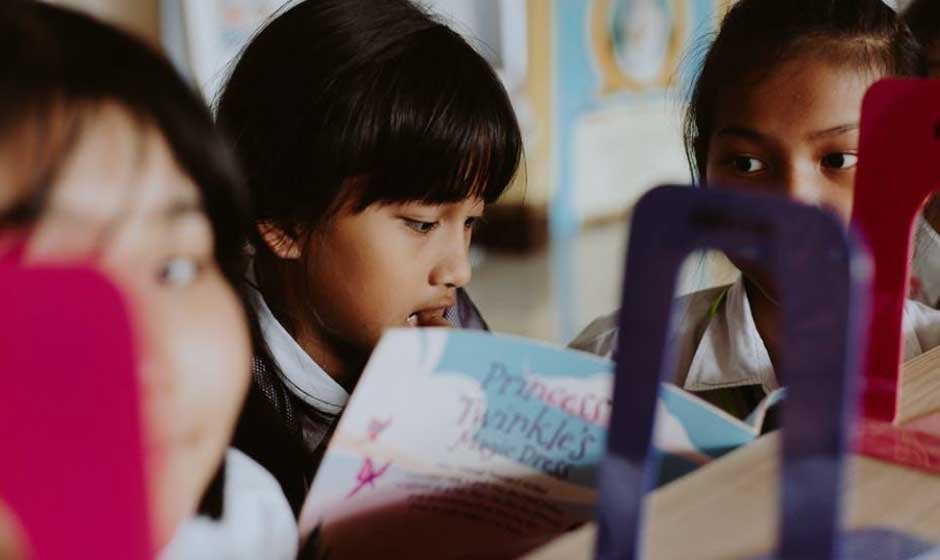How can we help children unlock their creative potential?
Montessori practices provide a unique way to nurture creativity. By focusing on independence and hands-on learning, kids can discover new ideas and express themselves freely. Through these methods, children develop problem-solving skills and find joy in learning.
Read on to discover how you can encourage creativity in children using Montessori techniques.
Encourage Hands-On Learning
Children learn best when they can touch, move, and do things on their own. That’s why hands-on learning is so powerful. It gives kids the chance to explore with their senses.
In a Montessori setting, learning tools are easy to hold and use. These tools help kids understand big ideas through simple actions. They’re not just watching – they’re doing.
Hands-on learning also keeps kids more focused. When their hands are busy, their minds stay active, too. It turns learning into something fun and real.
You might notice your child being more curious during these moments. They start asking more questions and trying new ways to solve problems. That’s how creativity begins to grow.
Foster Independent Exploration
Kids feel proud when they do things on their own. In Montessori learning, children make their own choices. They build confidence and grow with each small step.
They choose what to work on during the day. They plan their time without feeling rushed. These small actions help them learn to stay focused.
When children explore freely, they find what sparks their interest. They ask more questions and look closely at the world around them. Their creativity grows through these moments.
When you give kids space to try, they think for themselves. They test ideas and solve problems in new ways. That’s how real learning starts to take shape.
Create a Stimulating Environment
Kids get more excited to learn when their space feels calm and inviting. A clean and open room helps them focus better. Bright lights and loud sounds can make it harder to think.
Montessori classrooms feel peaceful and simple. You can do the same thing at home with a few changes. Try keeping toys and tools where kids can reach them easily.
One great idea is to use a Montessori bookshelf. It holds a small number of items, so kids don’t feel overwhelmed. They can see their choices and pick what interests them most.
When the space feels just right, children feel more in control. They enjoy spending time there and want to explore more. That’s how learning turns into something they truly enjoy.
Support Open-Ended Play
Kids don’t always need rules to play and learn. Sometimes, the best play has no set goal. That’s where their creativity comes to life.
Open-ended play gives children the chance to use their imagination. They might turn a stick into a wand or a box into a house. Their minds build new ideas with whatever they find.
They don’t need someone to tell them what to make or how to do it. They just need time and space to try things their way. That freedom helps them grow in ways we might not expect.
When play has no right answer, kids feel safe to be creative. They make their own stories and solve problems in fun ways. These moments are simple, but they mean a lot.
Provide Real-Life Experiences
Children learn so much by doing things that happen in everyday life. These moments may seem small, but they help kids grow in big ways. Simple tasks can lead to powerful learning.
Helping in the kitchen or watering plants can teach problem-solving and patience. Kids also learn to follow steps and stay focused. They start to see how their actions make a difference.
When kids take part in real-life work, they feel proud and trusted. They begin to understand how things work around them. That feeling builds confidence and sparks curiosity.
You don’t need anything fancy to do this. Invite your child to help with daily tasks at home. Learning often hides in the little things we do each day.
Allow Time for Reflection
Children need to have quiet time to think. Reflection helps them understand their thoughts and feelings. When they think about what they’ve done, they learn more.
After working on a task, kids can sit and talk about their experience. They might share what they learned or what was hard. This helps them think deeper about their actions.
Reflection also helps children solve problems. When they think about what worked and what didn’t, they get better. This process teaches them how to keep improving.
Give children time to relax and reflect on their day. This quiet time builds focus and encourages personal growth. It allows them to connect their experiences to new ideas.
Embrace Mistakes as Learning
Mistakes are a natural part of learning and growing. When children make mistakes, they can learn a lot. It’s important to show them that mistakes are okay.
Instead of feeling upset, kids can look at their mistakes as opportunities. They can figure out what went wrong and try again. This helps them develop problem-solving skills and persistence.
When we help children see mistakes as lessons, they feel more confident. They start to understand that making mistakes doesn’t mean failure. It’s a part of becoming better at what they do.
Cultivate Curiosity and Inquiry
Curiosity is a natural part of every child’s learning journey. When kids ask questions, it shows they want to learn more. By answering their questions, you encourage them to think deeper.
Sometimes, children might wonder about things that seem small but are important. These questions can lead to discoveries and ideas. Allowing them to explore their interests helps them develop a love for learning.
Encourage your child to ask “why” and “how” about everything they see. These simple questions spark their imagination and creativity. It shows them that asking questions is an important part of learning.
When children feel comfortable asking questions, they feel excited about learning. Their curiosity leads them to new experiences and discoveries every day. This helps them build skills that last a lifetime.
Cultivate Creativity Through Montessori Practices
Helping children grow their creativity takes time and care. Montessori practices make it easier by letting kids learn in their very own way. When children feel free to think and try new things, they become more confident and creative.
With the right support, every child can shine. Small changes can make a big difference in how they learn and grow each day.
Did you find this post helpful? If so, head back to our website for more informative content.
















